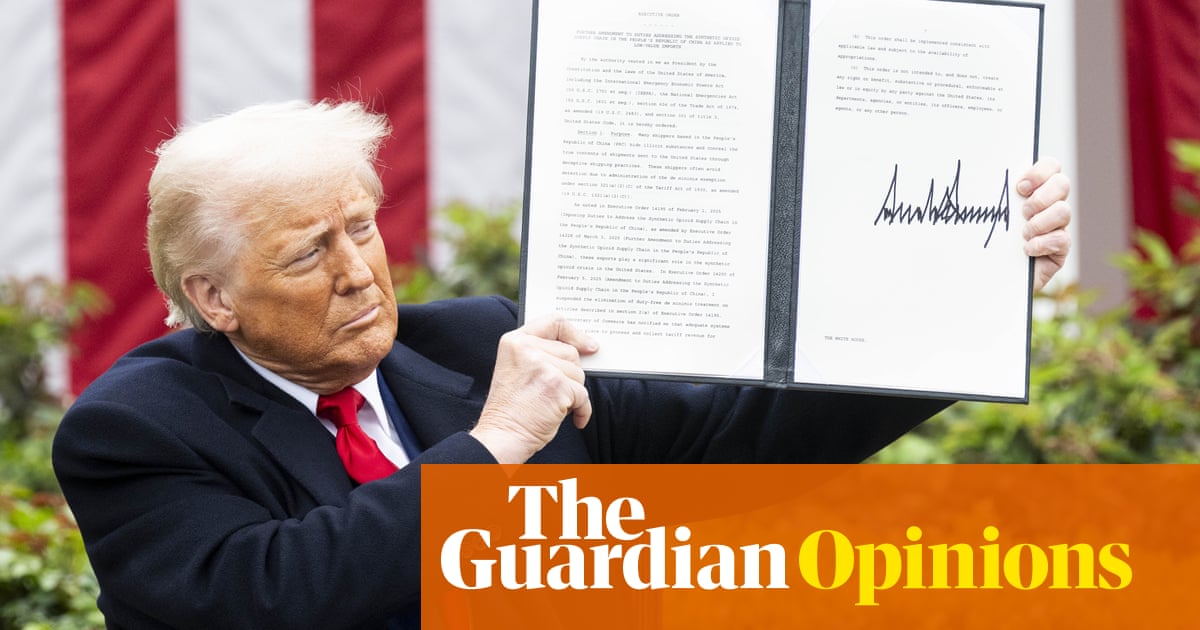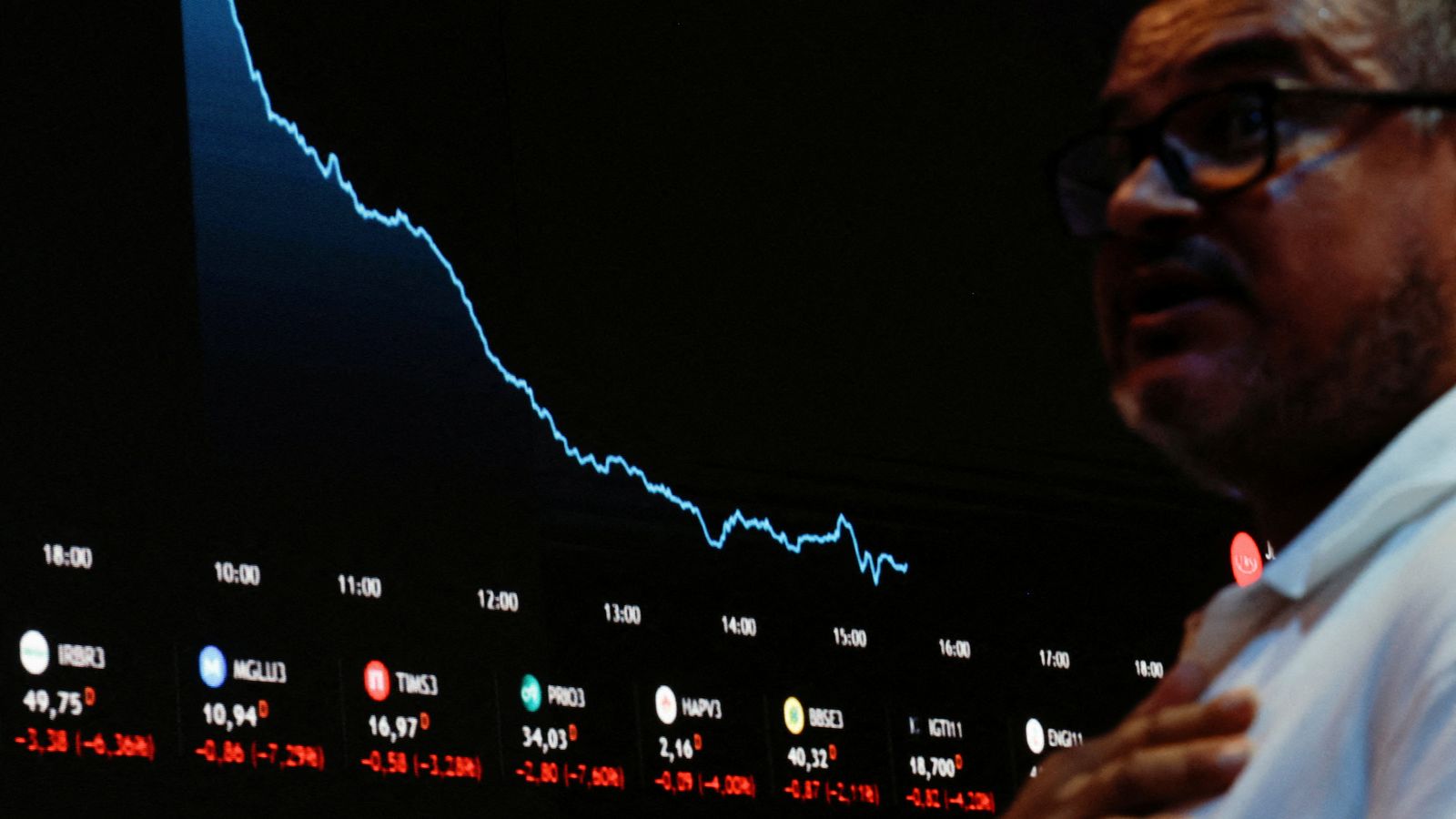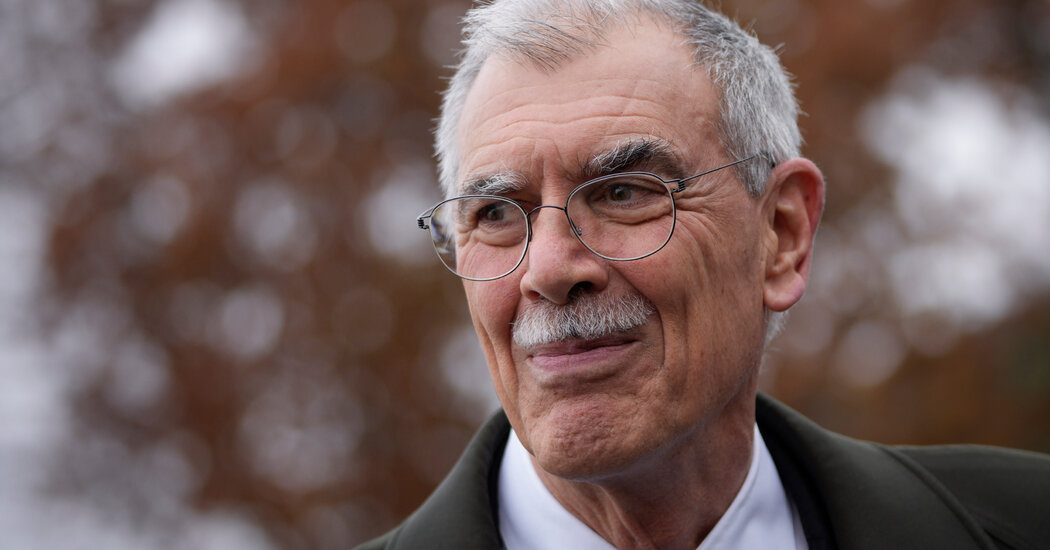
The US is turning its back on global trade. Ireland and the EU can’t afford to make the same mistake | Simon Coveney
Ireland believes in open, free trade and has build a strong, resilient economy by being the most globalised in Europe. We are a trading country. That is why last night’s news on tariffs came as such a disappointment to us.
Imposing tariffs to force companies to locate in the US will fundamentally change how the world sees it. US economic dominance has not been built on scale or purchasing power alone, but on relationships and alliances, something it is now damaging. “Liberation day” risks forcing a realignment of how global trade operates, without the US at its centre, as countries rethink their relationship with the US and seek new, more reliable partners.
Last year, Ireland exported €72bn worth of goods to the US. So a 20% tariff is huge. It could have been worse. For now, pharmaceuticals, which represent 60% of those exports, are exempt from the tariffs announced last night. However, that may only be a temporary reprieve.
Business leaders are predicting that if the tariffs remain unchanged they could have an impact of reducing Irish exports by 2-3% over time: serious but not catastrophic. The Irish economy has shown a remarkable ability to adapt to international challenges and opportunities in the past, and it will do so again by supporting businesses under pressure, focusing on competitiveness and diversifying exports into new markets.
Donald Trump’s justification for targeting the EU with a 20% tariff is mystifying. He claims the EU is charging the US 39% in tariffs. However, the average tariff applied to trade on both sides is less than 2%. In 2023, the US collected about €7bn in tariffs on EU exports of €502bn, and the EU collected about €3bn on US exports of about €344bn. It’s hardly justification for a trade war.
The question now turns to how we respond. With EU membership, Ireland’s trade policy is EU trade policy, so we have been focused on influencing opinions in Brussels. The EU won’t respond immediately with counter tariffs. It will wait and build consensus on how to respond in a way that’s considered and measured. Most importantly, the EU will seek dialogue and negotiation with the White House to address legitimate US concerns, where they exist, but also to mitigate against the most damaging impacts of the new US approach.
If negotiation fails, the EU needs a firm response. Trump respects strength not weakness, and has a history of altering decisions when confronted with consequences for US interests. The EU has powerful cards to play, and while it will be cautious by nature not to escalate tensions, it will also not allow unjustified, aggressive US tariffs to go without consequence.
Ireland should urge restraint and a response primarily aimed at defending the interests of our businesses and citizens. That means keeping reciprocal tariffs to a minimum. This is particularly the case as the island of Ireland faces the complex challenge of different tariff rates applying to Northern Ireland, as part of the UK, and the Republic of Ireland, 10% and 20% respectively. As if the Windsor framework wasn’t complex enough, we now have to resolve further challenges to protect an all-island economy that works for North and South.
The EU response should be less about retaliatory tariffs and more focused on our own competitiveness, productivity and ability to diversify away from the US market. While the US retreats from global trade, the EU should do the opposite, accelerate new trade deals and lead on promoting globalised supply chains with reliable partners.
Trump has the power to determine US policy on trade, but we should not allow him dictate our relationships with the rest of the world. Canada, Australia, Japan, the UK, India, Brazil, China, the Gulf and many other countries will be looking for new trading opportunities as the US turns its back. The UK in particular should be a priority for EU leaders, in a post-Brexit context, to progress on improving trading conditions for both sides. I hope the UK will share that endeavour.
There will be voices calling for an aggressive response to the Trump administration, to cut off efforts at transatlantic trade deals and a doubling down on what has been termed “strategic autonomy” for the EU without the US. This would be an expensive mistake.
We should not give up on transatlantic relations; they are essential for trade, stability and security in the future. We are living through an enforced reset, but while adapting we must always keep the door open to dialogue and improved relations. In other words, be the adult in the room.
Finally, the US is bigger than Trump. The EU must remain open to and supportive of American companies and interests. Their innovation, investment and employment is a huge asset to Europe. Let’s continue to invest in that relationship.







